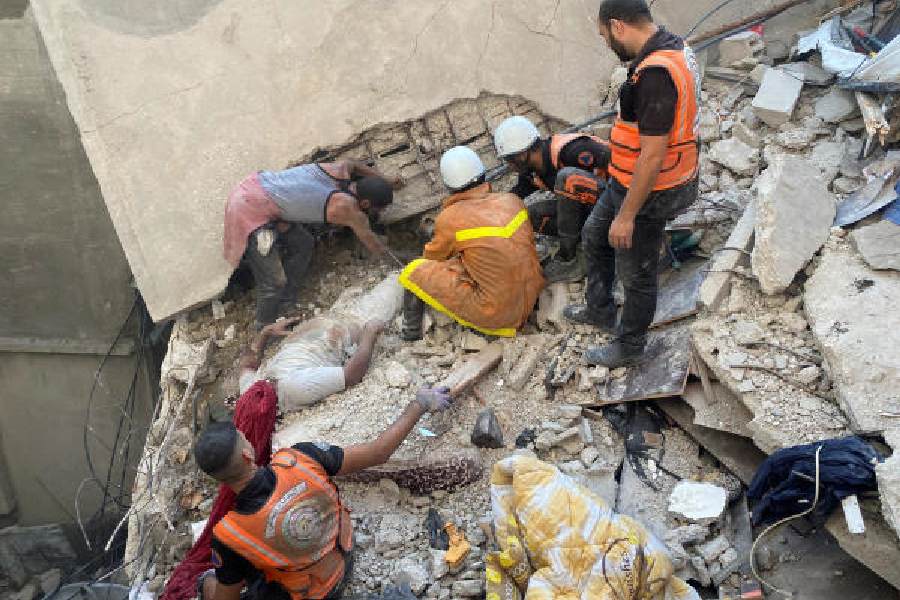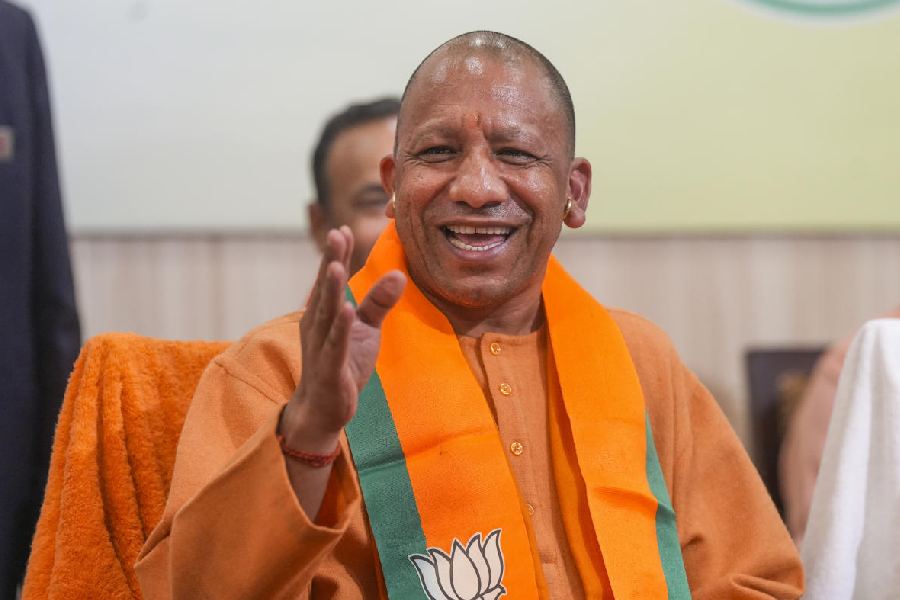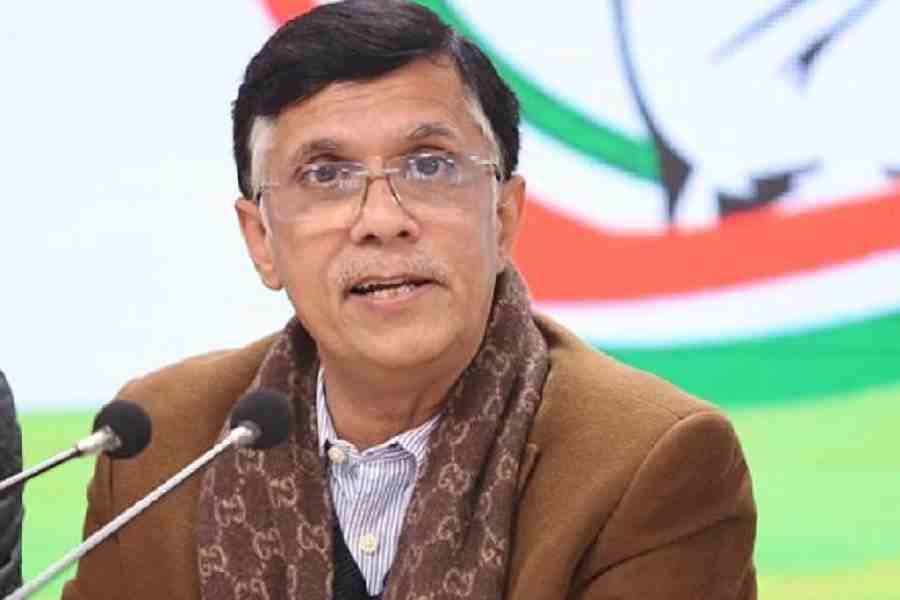Palestinian rescuers at the site of an overnight Israeli air strike on Gaza brushed away debris early on Wednesday to gradually reveal a motionless head and arm, the latest victim of a bombardment that has killed thousands.
As the rescuers scraped off more rubble, the rest of the body slowly emerged, a member of the Nasr family whose house in the southern city of Khan Younis was hit by bombing early on Wednesday, killing nine people according to residents.
“Our neighbours died. Everywhere you look there is a martyr,” said Eyad al-Ateyle, a neighbour who said the strike blasted him awake at 2am (local time) before he managed to get out of his home with his wife and child through a thick fog of dust.
Israel’s mounting assault has killed nearly 8,800 Palestinians according to health authorities in the Hamas-controlled enclave, mostly in air and artillery strikes like the one that hit the Nasr family home.
The military has said that although it has told civilians to move south, it will strike at any Hamas target throughout the strip while taking feasible precautions to mitigate harm.
The offensive, in response to the October 7 attack by Hamas militants who Israel said killed 1,400 people and abducted 240, now includes a ground invasion that is expected to intensify the violence.
More than half of Gaza’s population is already displaced, crammed hospitals lacking electricity and medicine are turning away the injured and gravediggers are running out of cemetery space.
On Tuesday an Israeli strike at the Jabalia refugee camp in north Gaza killed dozens of people according to hospital authorities, leaving a moonscape of craters. Israel said its strike targeted a senior Hamas commander.
At the morgue in Khan Younis, where the bodies of the Nasr family killed elsewhere in the city were taken, a group of men and boys stood watching as more dead arrived by ambulance.
Bodies were lifted onto stretchers and taken below to the morgue. A young boy stood silently peering through the railings. Angry family members of some of the dead cried “With our souls and our blood we redeem you martyrs”.
Inside, workers cleaned dust and blood from the dead and swaddled them in white shrouds to be taken away for burial. Of the 15 bodies in the morgue when Reuters visited on Wednesday morning, four were children. “Every day there are dead and every day there are children or women among them,” said a doctor there, who asked not to be named for fear of reprisals.
Israel has blocked off electricity, water and fuel supplies into Gaza, and only a tiny trickle of food and medicine is getting in through the Rafah crossing with Egypt.
Lacking petrol, many people are turning to donkey carts to get around. In Khan Younis, Farida Abu Azzam was taking her husband to hospital for his cancer treatment. “This is our only means of transportation now,” she said.
A donkey cart owner, Akram al-Qara, said he was running a regular route from Khan Younis city centre to the hospital, charging passengers one shekel each.











